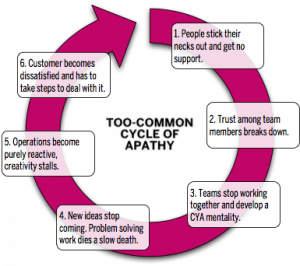 I talk about team diversity in my training. With a world filled with individuals, we have to learn to respect the differences of others. If you don't, I think you will live and work in a lot smaller world than me. More importantly, if you don't respect the differences of others, I'm a lot less open to have anything to do with you. It doesn't matter if we're dealing with functional roles on a team (developers vs. QA), race, gender, or religion. Respect the differences of others or keep your narrow minded thoughts to yourself. Actually, that's not right. Communications is good. Tell everyone what you're thinking so we know who you are.
I have two examples where lack of respect for diversity was clear to me but not others.
I talk about team diversity in my training. With a world filled with individuals, we have to learn to respect the differences of others. If you don't, I think you will live and work in a lot smaller world than me. More importantly, if you don't respect the differences of others, I'm a lot less open to have anything to do with you. It doesn't matter if we're dealing with functional roles on a team (developers vs. QA), race, gender, or religion. Respect the differences of others or keep your narrow minded thoughts to yourself. Actually, that's not right. Communications is good. Tell everyone what you're thinking so we know who you are.
I have two examples where lack of respect for diversity was clear to me but not others.
Scenario 1: The Cut Scout Pack Leader
My son is a cub scout. We have raised him to respect everyone, regardless of their many differences, to include gender, color, or religion.
The other night, we received an email from our son's Cub Scout Pack leader. It probably would not have bothered me so much if not for the fact that the pack has scheduled events on Jewish holidays and then rescheduled events around Christian holidays. Let me be clear that on a den level, the leaders have been very good in speaking to the boys in more general terms. "Be respectful, whatever your faith". My hat is off to these fellows. I appreciate that they go the extra mile. So here is the email we got from the pack leader:
Hello Pack,
This sunday is scout sunday February 5. Please wear your class A uniform with pride in church that day. If you would like to participate but do not attend church regularly. I offer up New Market Methodist church on north alley just off 874 behind main street in New Market. Their service is at 9:30 and 11:00 am.
A scout is reverent. This is one of the points of the scout law, and the reason for scout sunday.
I read no mention of what a boy should do if he attends a temple, synagogue, or mosque. I guess they are just out of luck. I think it was the last two sentences that put me over the edge. "A scout is reverent. This is one of the points of the scout law, and the reason for scout Sunday."
Actually, reverent is defined as feeling or showing deep and solemn respect. Clearly something the pack leader lacks for other religions.
Scenario 2: The CIO
Back in the day, I was the Manager of Software Engineering. My team was amazing and I would do anything for them. One particular item of note was the fact that probably 90% of them were from India. Now, I say I'm German but I wasn't born in Germany. When I say my teammates were from India, I mean they were here on H1B visas from India. Why is that important? Because, as far as I was concerned, I needed to respect their cultural differences and try to accommodate them in any way I could.
So, who was the person who lacked the respect (or understanding) of their cultural differences? The CIO just could not understand why the team would rather have Diwali off instead of Christmas. He didn't understand how offensive it was when he said to order lunch for the team and recommended I just order "a couple different kinds of meat sandwiches".
Do you know someone who lacked respect for diversity? What did you do?
Image Source: Pictofigo






